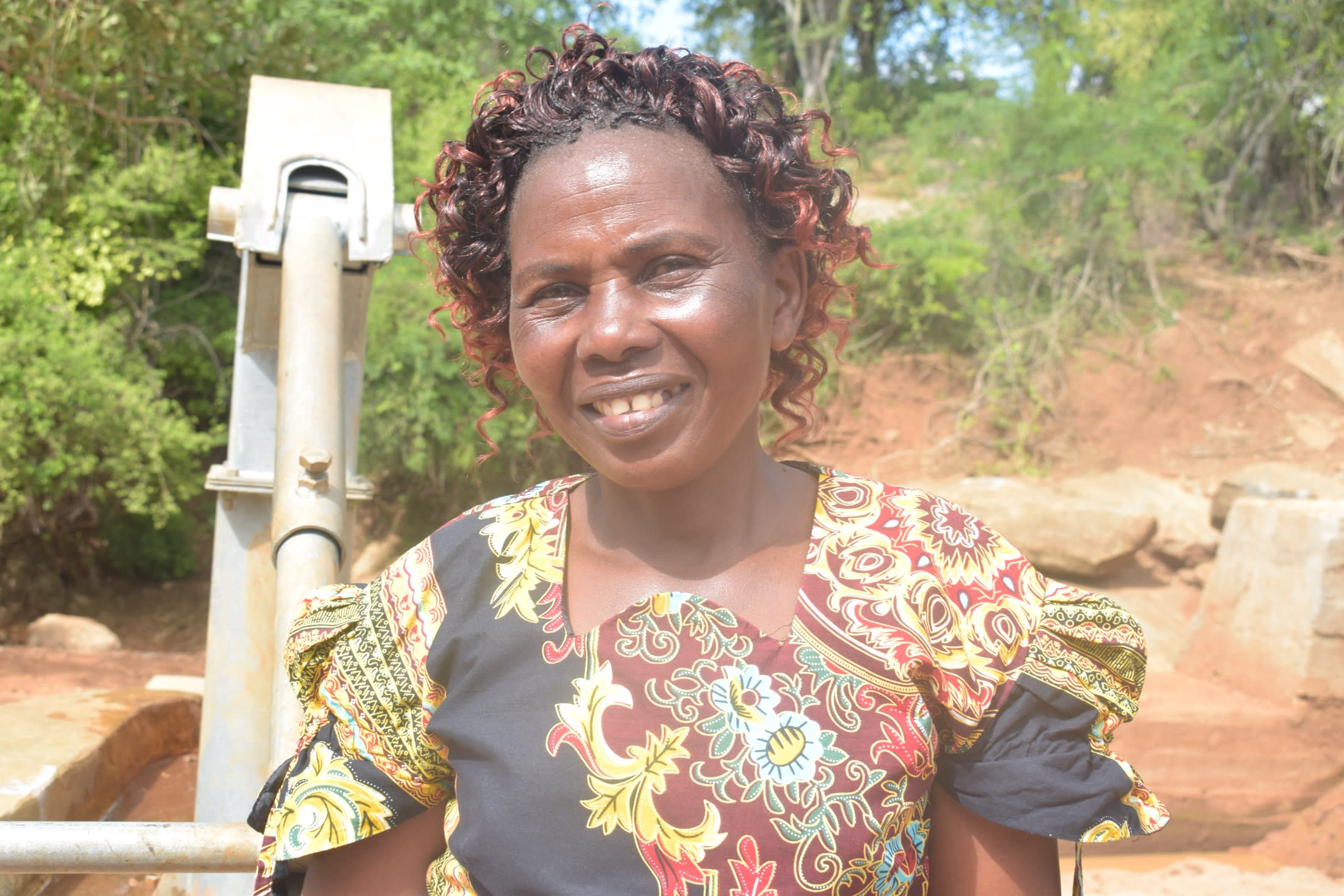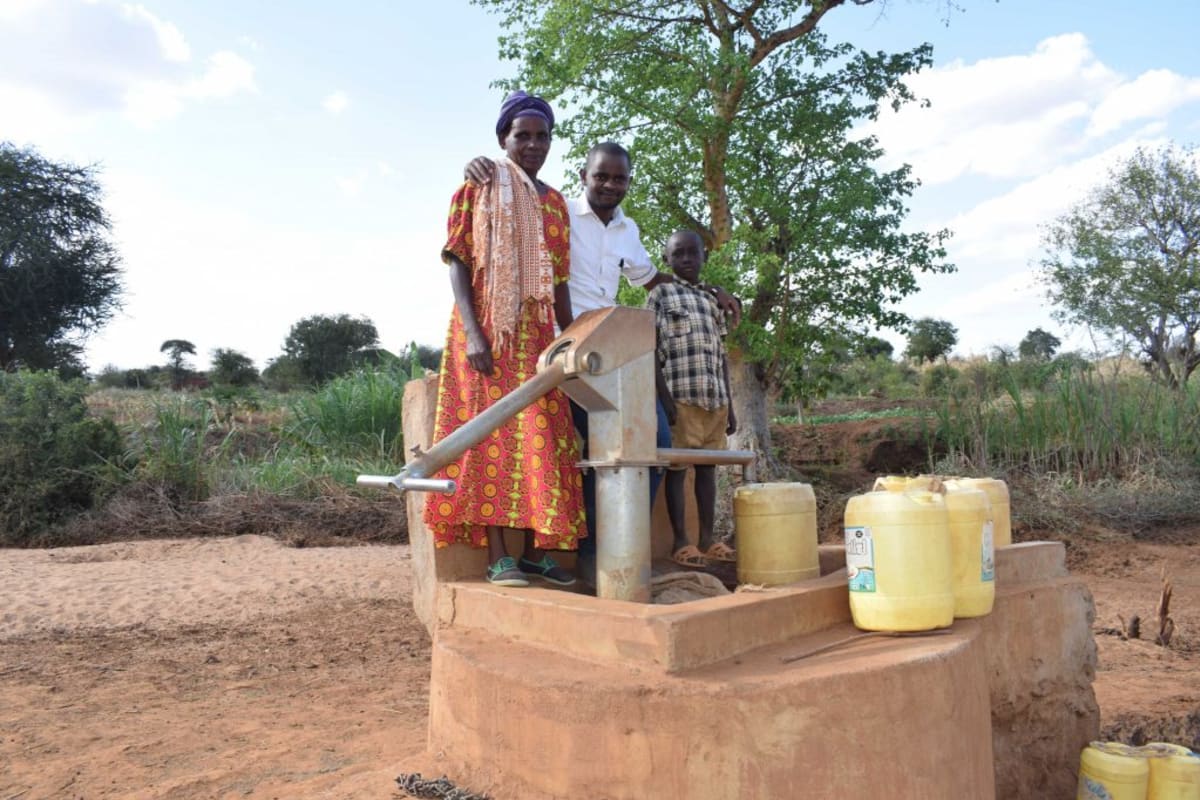This project is a part of our shared program with Africa Sand Dam Foundation. Our team is pleased to directly share the below report (edited for clarity, as needed).
Welcome to the Community
Kyeni kya Karuli Self-Help Group was formed in the year 1978. The purpose of the group was to tackle food insecurity and water shortage through the area of both resources. There was a major famine and drought at that time that caused a huge loss of livestock. The massive losses pushed many into poverty.
The members of this group mean to support each other in every way possible. Soon after its start, in 1983 the group was able to finish its first sand dam. However, because of weak structural design, the dam collapsed under the heavy storm rains of 1997. During the years between 1983 and 1997, the group’s sand dam made water more accessible to farmers, and in turn provided more food. With its loss, food and water shortage threatened families once again.
This area is home to 436 people who will all benefit from a new hand-dug well.
Water Situation
Having no sand dam in the area forces families to walk long distances in search of water. The closest source is a borehole three kilometers from the village. However, water at the borehole is sold at a fee of five shillings per 20-liter jerrycan, and not many community members can afford that price. The water from that borehole isn’t even reliable; sometimes a person will make the long trek only to find out that the pump is locked. The alternative for those who don’t want to pay is to dig a hole to access the water from the seasonal river.
The river scoop holes are separated between animals and humans. A farmer will bring his livestock to a different area to keep them away from scoop holes intended for human consumption. Moreover, these scoop holes set aside for human consumption are hedged with thorny bushes to keep animals away. As the seasons get drier, the community must dig these holes deeper. July through October, these scoop holes are at their deepest, and are actually very dangerous for small children to be around.
20-liter jerrycans are used to fetch the water and once home, dumped into larger containers varying in size from 200-400 liters. Water for drinking is kept inside and covered, and water for chores is left outside in the open.
A daily average of five hours is spent on fetching water, forcing these farmers to sacrifice time tending to their crops and animals. Ultimately, these farmers are sacrificing economic development just to get enough water.
Sanitation Situation
Over 75% of homes have pit latrines, but they are made with mud, the pits are shallow, and most have no doors for privacy. We noticed that because of these poor bathroom conditions, open defecation is an issue.
A few of the homes had hand-washing stations, and no more than half of homes had dish racks and clotheslines to dry things off the ground. Garbage is separated between a compost pile and a burn pile.
The community has a misperception that good sanitation and hygiene is only for the rich who have the money to build expensive toilets and tools. Many believe that since they are so impoverished, the government should step in and help. This idea is so strong that the community has been making little to no effort to establish good habits.
Plans: Hygiene and Sanitation Training
To address the concerns above, hygiene and sanitation training will be offered to self-help group members on two consecutive days. Once the members have learned about useful practices and tools to improve health, they will be able to share with their families and neighbors. Since open defecation is an issue, an emphasis will be placed on proper latrine construction and use.
Plans: Hand-Dug Well
This hand-dug well will be installed next to the group's newest sand dam (click here to see the sand dam project). As the dam builds up sand, it will raise the water table and naturally filter that water. Having a well gives locals a safe and easy way to fetch water this improved source.
Group members will work together to transport sand, stones, and water to the construction site. Local men will bail and excavate the well to an adequate depth. It will then be developed and lined with concrete casings. The well pad will be completed with a new AfriDev pump.
We interviewed the self-help group's chairman, 78-year-old Jackson Musyimi. We were able to discuss the needs of his community and hear his hopes and dreams for our partnership. Mr. Musyimi's picture can be found in the "See Photos & Video" section. He again told us what we already know, that "without a reliable supply of water in the community, many waterborne incidences have been reported. Every year, families spend money to treat such diseases in the local dispensary. We are determined to reduce such cases by creating more water points for the community!" Not only are more water sources needed here, but sources need to have cleaner water. This new hand-dug well will be a huge step in that direction! With your help over the next five years, Kyeni kya Karuli Self-Help Group will be able to build the safe water sources they need in their area.

 Protected Dug Well
Protected Dug Well
 Rehabilitation Project
Rehabilitation Project





























